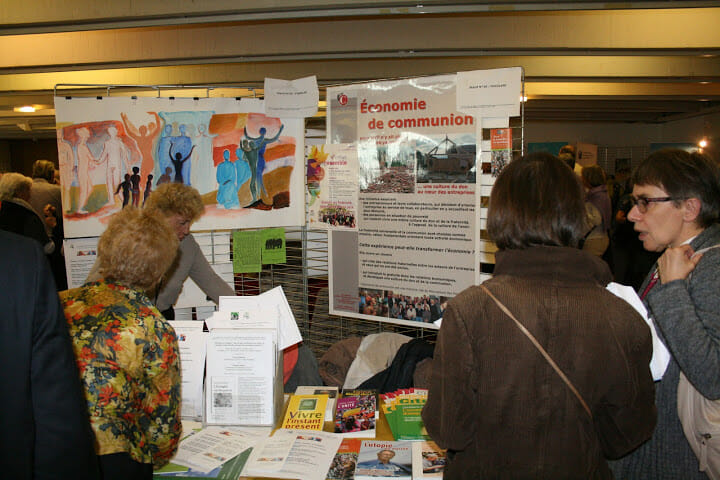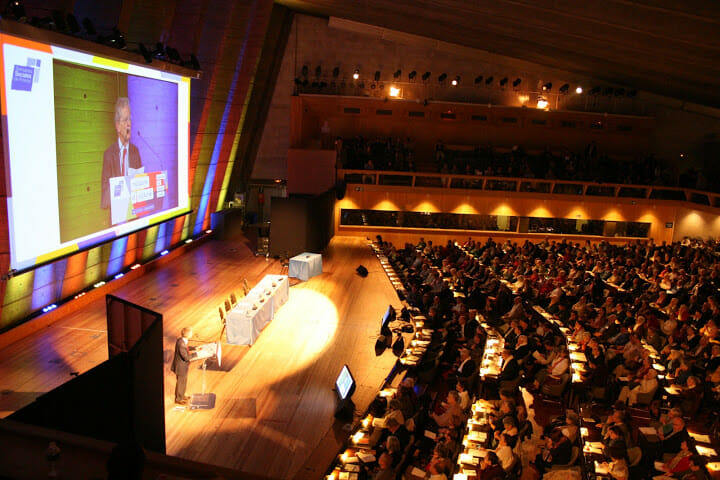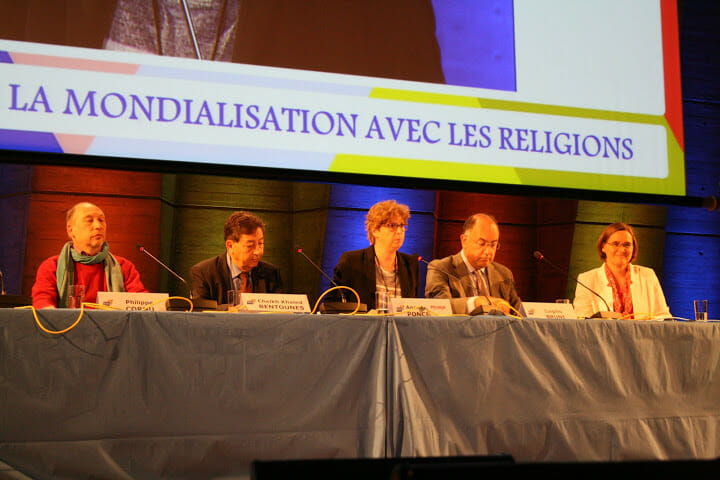
© Focolari-Alain Boudre
have a long tradition: born in 1904, their aim has always been to make Christian social thought known and bring its light on the issues of society: this way, the social doctrine of the Church may be applied to the problems of our times. The title of this latest edition attended by nearly 2000 people was: “
Religions and cultures, resources to imagine the world“. The most represented issues, as you can imagine because of their topicality, were
migrants and
the environment, brought to the centre of the world’s attention by the recent encyclical of Pope Francis
Laudato Sì.

© Focolari-Alain Boudre
The whole first day focused on the current situation with regard to these themes. The second day was devoted entirely to the contribution that religions can make to these emergencies. Finally, the last day focused on the Encyclical Laudato Sì, which was commented from different points of view.
Luigino Bruni spoke on the second day, Saturday, 3 October, as part of the round table discussion entitled: “
Renewing our vision of globalization through religions.”. The idea was to reflect on how to imagine a “finite” and common world together in a world with different cultures and very uneven levels of development. Three religions (Christian, Muslim and Buddhist) entered into dialogue departing from their respective texts about creation.

© Focolari-Alain Boudre
‘s partners in dialogue were Muslim spiritual leader of the Sufi brotherhood
Alâwiyya Cheikh Khaled Bentounes (founder of the Muslim Scouts and one of the promoters of the interreligious festival “
Vivre Ensemble à Cannes” ) and Buddhist
Philippe Cornu, president of the
Institut d’Études Bouddhiques. We asked
Anouk Grevin, who assisted Luigino with simultaneous interpreting, to tell us something about this really special event: “
All speakers quoted a text on creation from their own religious tradition, commenting on it, and making some really deep points to an intensely attentive audience. In the end, in a somewhat unexpected way, Luigino asked some questions to his interlocutors, and this gave rise to a very profound and fraternal dialogue that was a definitely beautiful testimony of interreligious dialogue in which mutual respect was shown and light was shed on many points shared by their respective visions. The dialogue ended with a fraternal embrace of the three, with a burst of applause throughout the hall.” The intervention of Luigino Bruni entitled “
An anthropological and economic reflection starting from the first chapters of Genesis“, touched on the themes of creation, the earth, fraternity; Adam and Cain; Noah and the Tower of Babel, relating all these to the present. This is how Luigino concluded his speech: “
Out of Eden, in the garden of history now, we shall not find the new language of Adam if we keep turning back or stop our history inside similar towers; we will only be able to retrieve it if we walk following a voice, a rainbow, a star, a wandering Aramean. Today in Europe, in the era of financial and social floods, the temptation of Babel is about to return with increased force. But there are also many Noahs emerging to fight the boats of death and their traffickers by creating arks of salvation at all levels. We must continue to bring down the high towers, and build arks to save and save us from old and new floods. But above all we have to save the children, our sons and daughters and the children of everyone else, too. The promised land is for them.” See the
full text of Luigino Bruni’s intervention
0 Comments